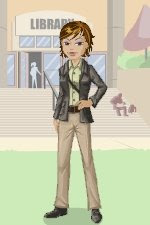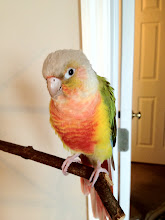
Creative Commons’ first project, in December 2002, was the release of a set of copyright licenses free for public use. Creative Commons developed a Web application that helps people dedicate their creative works to the public domain — or retain their copyright while licensing them as free for certain uses, on certain conditions. Creative Commons licenses are designed for several kinds of creative works: websites, scholarship, music, film, photography, literature, courseware, etc.
The first step is to choose from several conditions you would like applied to your work.
The choice begins with the amount of attribution you allow regarding copying, distributing, displaying, and/or performing your copyrighted work. Choices include deciding if your work can be "tweaked" and redistributed for commercial and/or non-commercial uses with appropriate credit to the original work. the range of choices include from the "most accommodating" to the creation of derivative works to the "most restrictive" meaning simply allowing redistribution of the original, intact, with credit. Once decided, select a license and place the appropriate icon or link with your work to convey your intention.
Creative Commons has developed a flyer that describes the process. Other useful links can be found on the Documentation page.
Creative Commons is recognized globally. Licencing agreements are broken down into three levels: Commons Deed (written in understandable language), Legal Code (for lawyers) and the Digital Code (metadata). The Legal Code portion can change depending on the country of origin.
I must admit that this is such a worthy project that provides a necessary component to the evolution of web2.0 capabilities. It offers a chance for true global collaboration...grass roots development regardless of geographic location, while still offering some level of protection to the original work.
At the header of this PA Online Web 2.o it reads:
"Learning 2.0 is a discovery learning program created by Helene Blowers. Content
and style for School Library Learning 2.0 and Classroom Learning 2.0 have been
borrowed and duplicated with permission, under a Creative Commons License".
In addition, on a sidebar of the California site it reads:
"Learning 2.0 is a discovery learning program created by Helene Blowers. Content and style for School Library Learning 2.0 and Classroom Learning 2.0 have been borrowed and duplicated with permission, under a Creative Commons License".
A general search for Helene Blowers led me here to the original 23 thing site and here to a 2007 article in Library Journal online promoting Helene's open access attitude.
It's hard to believe I've finally reached the end of this discovery journey (nearly...).
The true power of this is in the experience. What I'd love to do is bring this back to my learning community and share this...get more people to walk the walk. These ideas are meant to be passed on, used from different perspectives, rise in different ways.
And, based on the language of the Creative Commons License associated with this project...I can. How great is that!
One more thing to go...a least for today : ).
I'd like to leave you with this thought...jane


